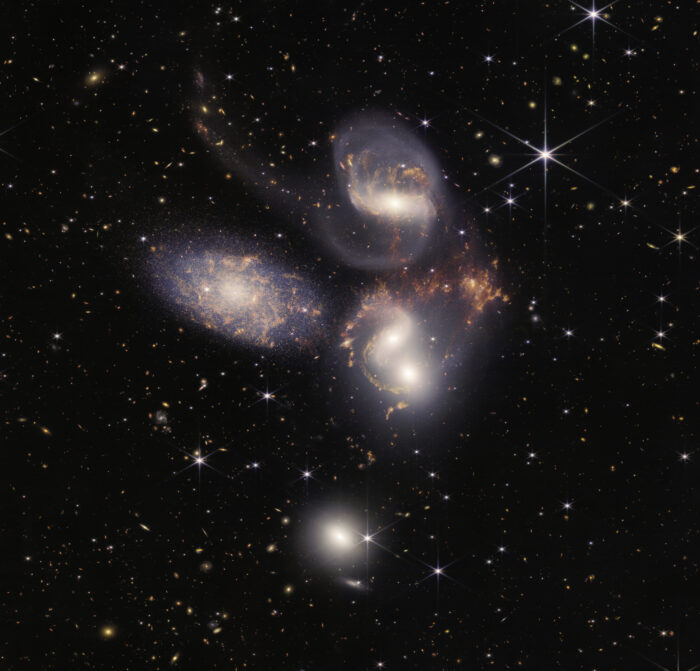Do you know the biblical story of creation? The story in which it takes six days to create the world and every living being? Sometimes I wonder how it would sound if it was narrated with today’s mind, with the knowledge we have about the universe today? Because, the world probably seems much more incredible and wider to us today, even though we know more about it — well, maybe even because we know more about it.
I mean, let’s take the time: from the Australopithecus lady Lucy to us here, it was already a long, adventurous journey. The hands we once used to climb trees now grow fields full of crop and play the piano.1 But what are 3-4 million years on a 4.6 billion-year-old planet? (A little illustration of the time span? 1 million seconds are 11 days, 1 billion seconds are 32 years.) — How much more extended does the period of so-called creation looks like, considering stardust, of which everything here was once formed, how much more extended considering the first forms of life (tiny single-celled organisms) and their long evolution towards the incredible living diversity which we enjoy today!2
And then there is the space itself: How much wider looks the horizon and how much higher does the sky appear through James Webb and Hubble, full of distant suns and some really huge neighbours! Today we know that our Earth would fit 1,400 times into the planet Jupiter. 1,400 times! We can’t imagine that. And if we look at the sun, the earth would fit into it 1.3 million times. Right, it gets very big out there very quickly. And there are still the really big stars: in Stephenson 2-18, for example, the volume of our sun would actually fit in 10 billion times.3 — How lonely would it be without the other planets?4 🙂

In a nutshell: to me, all these dimensions seem 1000 times more incredible today.5 How tiny, random, yet significant and important for me: my own and our existence.
A feeling full of humility and stunned awe arises in me when I think about all this, already when I just sit at home at my window with my little telescope watching the rings of Saturn and Jupiter with its moons during nighttime.
I love such moments in which I feel deeply connected with the world and imagine ideas of its past, present and future. It’s somehow anchoring me in life and existence. Like when I throw stones in a river with my daughter and watch them sink into the water — and while I tell her, of course, stories about prehistoric humans and the universe. 😉
The world is full of wonders. Keep exploring. It’s fun! ❤️
Footnotes / further reading
- Inspired by de Waal, F.: The Bonobo and the Atheist. In Search of Humanism Among the Primates. New York & London: Norton & Company, 2014, p. 47.
- Curtis, S.: Kosmische Schmiede der schweren Elemente. In: Spektrum der Wissenschaft (No. 5, 2023), p. 12-21; Kregenow, J.: Astrophysik für Babys. Bindlach: Loewe, 2019; Wie und wo lebten die ersten Zellen? In: MT im Dialog (July 27, 2016). URL: https://www.mtdialog.de/artikel/wie-und-wo-lebten-die-ersten-zellen. Retrieved June 30, 2023.
- Giganten im Weltall. 9 Fakten über die grössten Sterne des Universums. In: Watson Switzerland (June 4, 2021). URL: https://www.watson.ch/wissen/astronomie/415739959-giganten-im-weltall-9-fakten-ueber-die-groessten-sterne-des-universums. Retrieved May 15, 2023.
- Do you know Pythagoras believed that every planet produced a certain sound on its sphere? Plato explained later that we do not hear these sounds of the harmony of the spheres because they are, in a certain sense, eternal for us. Because we have been hearing them since our birth. However, they accompany us as a fundamental tone throughout our lives — what a beautiful thought!
- Siegel, E.: There are more galaxies in the Universe than even Carl Sagan ever imagined. In: Freethink (September 2, 2022). URL: https://www.freethink.com/space/galaxies-in-the-universe. Retrieved June 13, 2023.